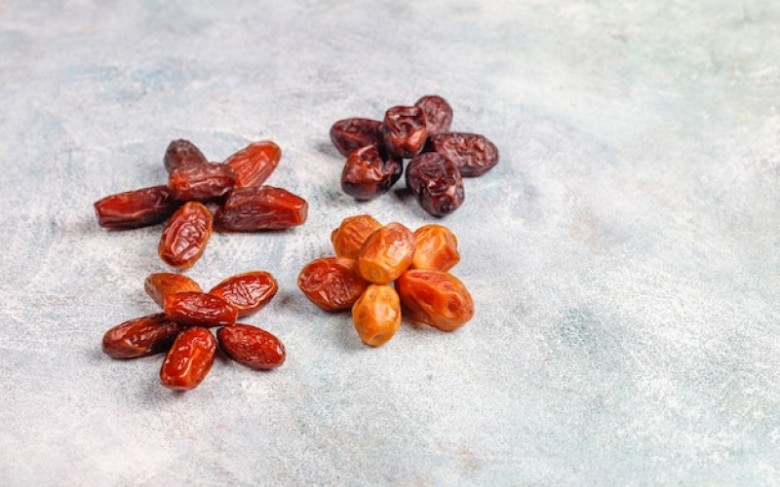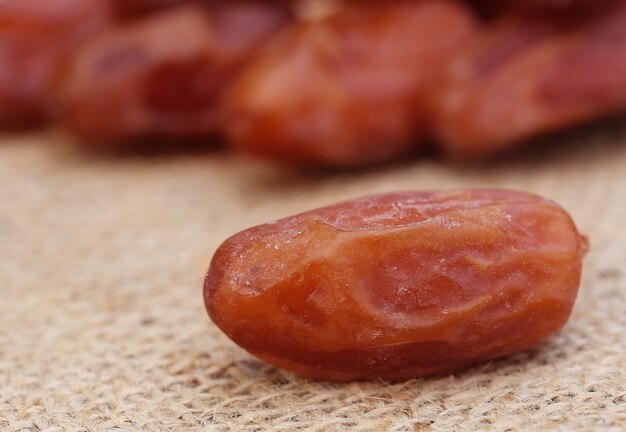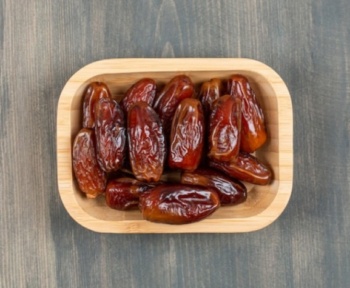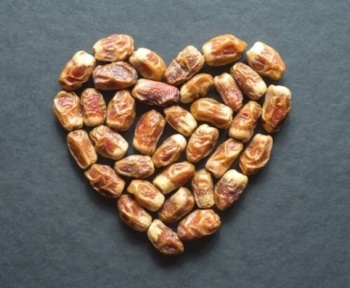Dried dates are one of those foods that sneak under the radar when it comes to healthy snacks. We’ve all seen them at the grocery store or maybe even tossed a few in our oatmeal, but have you ever really thought about how good they are for you? Spoiler alert: they’re pretty great! Let’s take a closer look at why dried dates are not just a sweet treat but also a powerhouse of nutrition. By the end, you’ll see why you should keep these chewy gems on hand.
What Are Dried Dates?
Dried dates come from the fruit of the date palm tree, which grows mainly in the Middle East and North Africa. You’ve probably seen them in stores, and their wrinkled, deep brown skin gives them a distinct look. The drying process makes dates sweet, chewy, and a little more concentrated in flavour.
You’ll most often find Medjool dates at the store. They’re the big, soft ones with a rich, almost caramel-like taste. But there are other varieties too, like Deglet Noor, which are smaller and firmer. It all depends on what you’re in the mood for.
Types of Dried Dates

Nutritional Facts of Dried Dates
Okay, so let’s talk about the good stuff. Dried dates are full of nutrients. They’re naturally packed with sugars, which is why they taste so good. Still, they also have plenty of fibre, vitamins, and minerals that make them a healthier choice than many other sweet snacks.
Here’s a quick breakdown of what you’re getting in each serving.
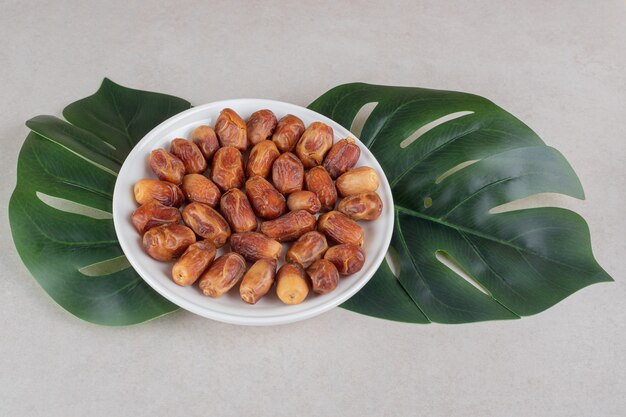
Nutritional Breakdown of Dried Dates

As you can see, dried dates are mostly made up of carbohydrates, with a good chunk of that being natural sugars. But here’s the kicker: they’re also rich in fibre, potassium, and magnesium. This means you’re not just getting sugar – you’re also fueling your body with nutrients that keep you feeling good.
Health Benefits of Dried Dates
Now that we’ve seen what’s inside let’s talk about why dried dates are so good for you. They’re not just a tasty snack; they pack some pretty impressive health benefits.
Great for Digestion
One of the big perks of dried dates is their fibre content. Fibre is essential for keeping your digestive system running smoothly. It helps prevent constipation and can even promote gut health. So, if you want something that’ll keep your digestive system happy, dried dates are an easy (and sweet) choice.
A Quick Energy Boost
If you’re in need of a little pick-me-up, dried dates are your new best friend. They’re full of natural sugars like glucose and fructose, which give you a fast burst of energy. Whether you’re heading to the gym or need a boost in the afternoon, a few dried dates can help you feel more awake and alert.
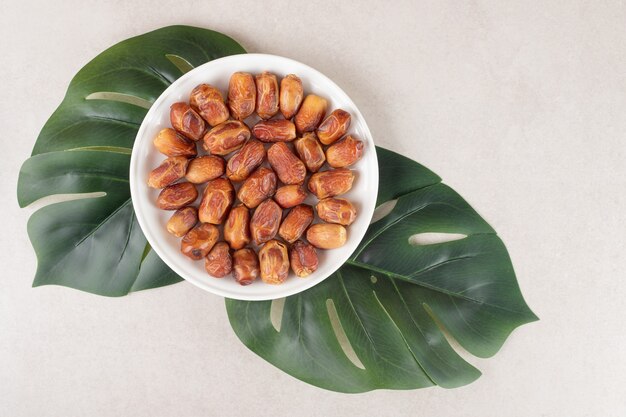
Packed with Antioxidants
Dates are full of antioxidants like flavonoids, carotenoids, and phenolic acid. These compounds help protect your body from the damaging effects of free radicals. Think of them as tiny soldiers who safeguard your cells from stress and damage. If you want to keep your body in tip-top shape, these antioxidants are a great way to help fight off diseases.
Supports Heart Health
Dried dates are rich in potassium and magnesium, which are key nutrients for heart health. Potassium helps control blood pressure, and magnesium ensures your heart is beating just right. Eating dates may contribute to a healthier cardiovascular system overall.
Strengthens Your Bones
We don’t always think about bone health, but it’s something we should all keep in mind, especially as we age. Dried dates contain calcium, magnesium, and phosphorus – all essential minerals that help keep bones strong. If you want to keep your bones sturdy, dates can be part of the equation.
Fights Iron Deficiency
Dried dates are also a decent source of iron, which is essential for producing haemoglobin (the protein that helps carry oxygen in your blood). If you’ve been feeling tired or sluggish lately, your iron levels might be low. Eating dried dates can help you fight iron deficiency and boost your energy levels.
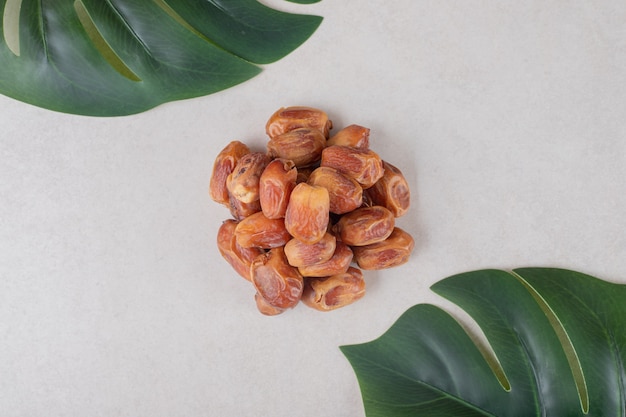
How to Eat Dried Dates
Dried dates are a versatile fruit that adds natural sweetness and nutrients. You can enjoy them in many ways, whether you snack on them directly or use them as an ingredient in your meals.
Simple Ways to Enjoy Dried Dates
- Snack on Them: Sometimes, the simplest way is the best. Just grab a couple of dates and munch away for a quick, healthy snack.
- Add to Smoothies: Dates make smoothies extra sweet and are a great way to pack in some extra nutrition.
- Bake with them: Chopped dates are a healthy sugar substitute for cookies, cakes, and muffins.
- Toss in Salads: Add some chopped dates to your salads for a pop of sweetness that pairs perfectly with greens and nuts.
- Stir Into Oatmeal: Add chopped dates to your morning oats for extra flavour and fibre.
Are Dried Dates Safe for Everyone?
Dried dates are generally safe for most people, but like anything, moderation is key. It’s essential to be mindful of how much you’re eating, especially if you have certain health conditions.
Who Should Be Cautious?
- People with Diabetes: Dried dates are high in sugar, so if you’re managing diabetes, it’s a good idea to enjoy them in smaller portions.
- Those with Sensitive Digestion: Because dates are fibre-packed, eating too many can sometimes cause bloating or discomfort. Moderation is key here, too.
Tips for Eating Dried Dates
- Keep It Moderate: Aim for 2-3 dried dates per day to avoid excess sugar and calories.
- Pair with Other Foods: For a balanced snack, pair your dates with protein or healthy fats (think nuts or yoghurt) to keep you full longer.
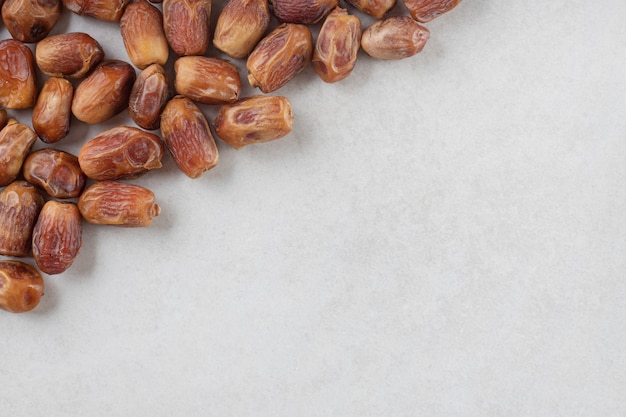
How to Choose the Best Dried Dates
Not all dried dates are made equal, so it’s worth paying attention when you shop. Here’s a quick checklist to help you choose the best ones.
Checklist for Choosing Quality Dried Dates
- Go Organic: Organic dates are free from pesticides and chemicals, making them a healthier choice.
- No Added Sugar: Make sure there are no added sugars or preservatives in the ingredient list.
- Check Freshness: Dates should be soft and chewy. If they’re too complex or dry, they’re probably not as fresh.
- Packaging Matters: Look for dates in airtight packaging to preserve their quality.
Traditional and Modern Uses of Dried Dates
Historically, dried dates were used in Middle Eastern and North African cultures for everything from energy boosts to medicinal purposes. Today, they’re still a staple in many countries and are widely appreciated for their natural sweetness.
From ancient times to modern-day health trends, dates have remained a trusted source of nutrition. Whether you’re incorporating them into your diet for health or simply enjoying them as a tasty snack, they’re a food that bridges tradition and modern wellness.
Interview: Insights from Nutritionist Sarah Thompson on the Health Benefits of Dried Dates
In an exclusive interview with Sarah Thompson, a registered nutritionist and wellness expert, she shared her thoughts on the health benefits of dried dates:
“Dried dates are a powerhouse of essential nutrients like fiber, potassium, and antioxidants. They not only boost energy but also support heart health, improve digestion, and help manage blood sugar levels. The key is to enjoy them in moderation to avoid excessive sugar intake.”
Conclusion: Why You Should Add Dried Dates to Your Diet
Dried dates aren’t just a delicious treat; they’re also packed with nutrients and offer several health benefits. From supporting digestion to boosting energy, they’re an excellent choice for anyone looking to improve their diet. Just remember to enjoy them in moderation, and you’ll be reaping the rewards.
FAQs
Dried dates can help with weight loss in moderation. Their fibre content helps you feel full for longer, reducing your overall calorie intake.
Around 2-3 dried dates a day is a healthy amount. They’re packed with nutrients, so you don’t need to eat a lot to reap the benefits.
Yes, the antioxidants in dates help protect your skin from oxidative stress, keeping it looking youthful and glowing.
Both dried and fresh dates are healthy, but dried dates are more concentrated in sugar and calories. They’re better for quick energy but should be eaten in moderation.
Dried dates are safe for kids but should be given in moderation. They’re a healthy snack, but be mindful of the sugar content.
Store dried dates in an airtight container in a cool, dry place, or refrigerate them to keep them fresh longer.
Yes, dried dates can be a helpful snack for weight loss when eaten in moderation. They’re high in fibre, which can help you feel full longer, reducing overall calorie intake. However, because they’re also high in natural sugars and calories, portion control is key.
A serving of 2-3 dried dates a day is typically recommended. This amount provides a good balance of nutrients, such as fibre and antioxidants, without going overboard on calories or sugar.
Yes, dried dates are rich in fibre, which promotes healthy digestion and regular bowel movements. Eating dates can help prevent constipation and support overall gut health.
Dried dates and fresh dates each have their benefits. Dried dates are more concentrated in sugars and calories but are packed with nutrients like fibre, potassium, and antioxidants. Fresh dates are lower in calories and sugar but still provide similar health benefits.
Absolutely! Dried dates are a natural source of quick energy due to their high sugar content (glucose and fructose). They can give you a quick energy boost, making them an ideal snack before a workout or when you need an afternoon pick-me-up.


